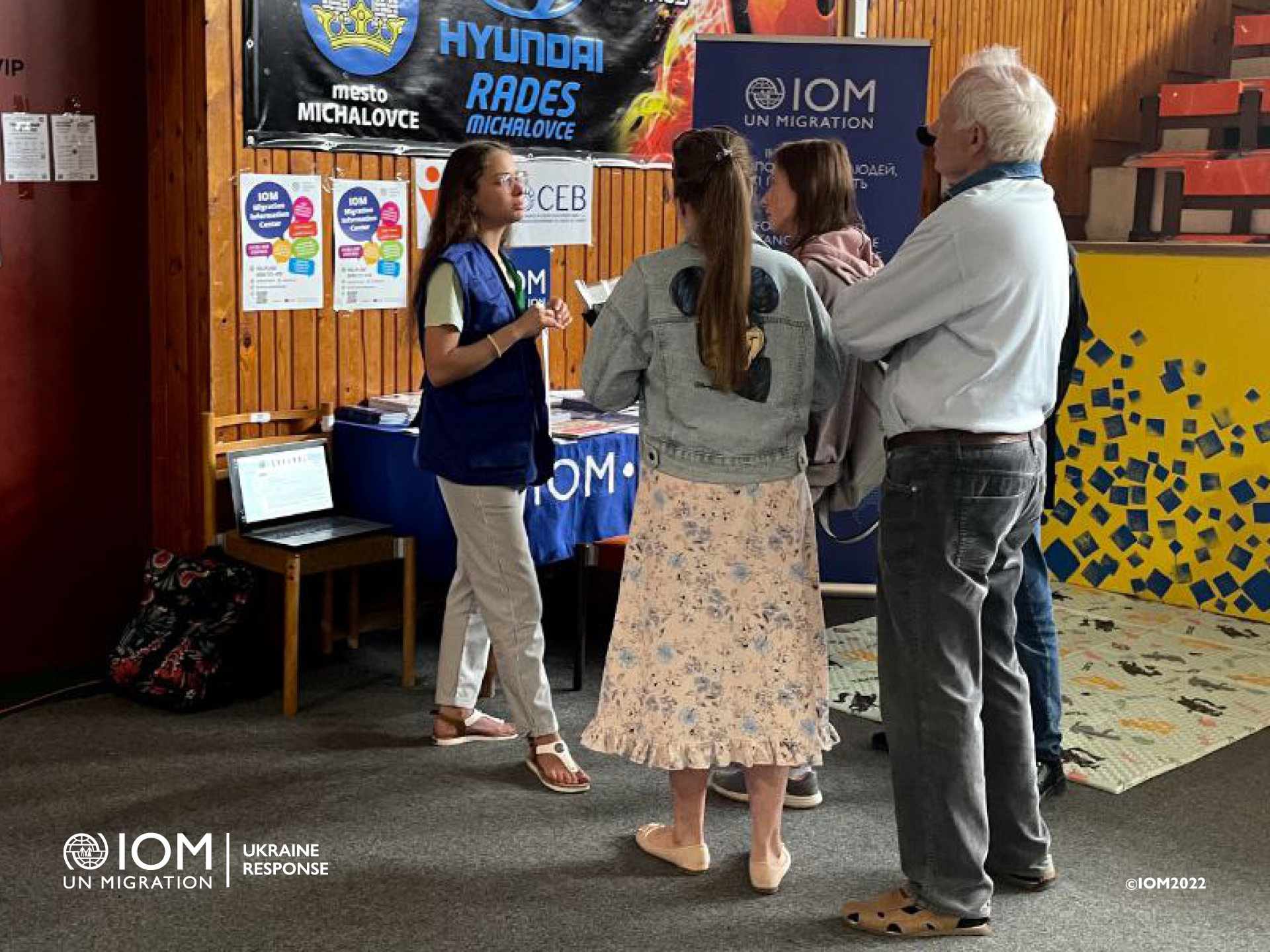When Yelyzaveta woke up on 24 February and saw on the news that Ukraine had been invaded, the first thing she did was to take out her suitcase. “We didn’t know what to expect, but I wanted to be prepared to leave,” she explains.
She was living in Zaporizhzhia, in southeastern Ukraine, with her mother and grandparents, who were more hesitant to flee the country than she was. They could barely sleep and there was no time to eat, because during their meal, the air siren would go off without exception and they would have to take shelter in a bunker.
“I was getting more nervous, anxious, afraid, with each day that passed,” Yelyzaveta says. After five days that went on like this, she decided to make her way to Slovakia, where her father worked. She had to leave her mother and grandparents behind. “My grandparents didn’t want to leave. With elderly people, home is home.”
Three days and several train rides later, she arrived in Nitra, Slovakia. The company her father worked for was helping Ukrainian staff and their families, making sure they had a safe place to stay. Halina spent the next two weeks in a dormitory, racking her brains about what she wanted to do next.
As the days went by, the most difficult part was realizing that, for now at least, she wouldn’t be able to achieve all the goals that she had set for herself. Even if the war ended tomorrow and she went back to Ukraine, the impact will be long-lasting.
She is slowly getting used to this new reality, she says, but some days are tougher than others.
“Sometimes, I feel like I have survivor’s guilt – that I am here and safe, while others have it worse.”
One day, as she was browsing for jobs, she saw on IOM Slovakia’s website that they were hiring people – Ukrainian speakers in particular – to provide information and counselling to those fleeing the war. Yelyzaveta longed to do something to help others and this seemed like the perfect fit. She is now part of an IOM team that rotates every few days between the three main border crossings and Michalovce, where the large-scale registration centre is located.

Yelyzaveta says that those arriving in Slovakia are always looking for Ukrainian speakers, so she feels useful to her compatriots.
On the photo, she is providing counselling in Ukrainian language to The Ukrainian family from Dnipro that fled the war to Slovakia and came to the Michalovce Registration Centre to apply for temporary refuge. Photo © International Organization for Migration (IOM) 2022.
“It can be lonely sometimes – I don’t really have friends or hobbies yet – and emotionally challenging to hear people’s stories,” she expresses. “However, it can also feel very rewarding. I am here to offer a helping hand to those who need to process everything they just went through.”
Written by Miko Alazas, International Organization for Migration (IOM)
Read more
Meet Julia, Yelyzaveta, and Yana – three Ukrainian members of IOM teams who have been pro-viding critical information, and supporting people forced to flee Ukraine to neighbouring countries.
Written by Miko Alazas, International Organization for Migration (IOM)
 Slovenčina
Slovenčina
 Українська (Україна)
Українська (Україна)
 English
English
